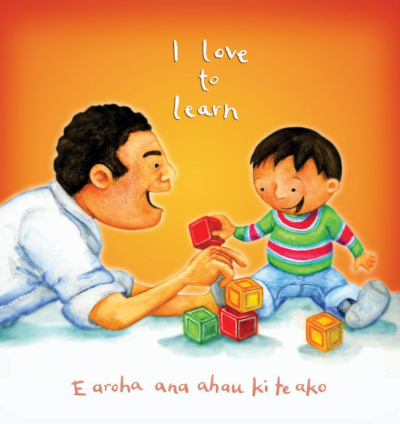
Toddlers’ eating habits
Children's appetites will vary. There are a variety of things parents can do to successfully manage their child's eating.
Parents may notice that their toddler’s appetite can range from very hungry to not hungry at all. This is because their growth rate has begun to slow down and they don’t need to eat as much. It can also be related to a toddler’s desire to make some decisions for themselves. A toddler can decide not to eat, and if they do, we can’t make them.
Ask whānau:
- Has the whānau noticed anything like this going on?
- What are they doing about it?
- Would you like some ideas?
Managing eating habits
Here are some ideas you can suggest:
- Provide a range of nutritious foods during the day and allow your toddler to choose what and how much to eat.
- Offer smaller meals and healthy snacks, for example, offer 5 small meals rather than 3 big ones.
- If you’re concerned about nutrition, you can keep a food diary for several days and see what your toddler chooses to eat – most will eat a balanced diet over time.
- If your toddler refuses to eat, it’s best to stay calm and remove the food. It can be offered again later.
- When appropriate, give your toddler a choice of 2 things.
- Avoid sugary drinks, including fruit juice.
- Avoid bribes and persuasion – it’s okay to let your toddler decide which of the nutritious foods on offer to eat.
More about appetite for toddlers 19 to 24 months
Page 15 of the Whakatipu booklet Te Kōhuri 1 might explain what’s going on. Pēpi says:
‘All this activity makes me hungry. It’s ok to give me lots of little healthy snacks during the day, because sometimes I’m too busy to eat a big kai.’
On page 18 of the booklet, whānau say:
‘Some days pēpi isn’t interested in having three full meals. So we offer small amounts of a range of good kai throughout the day.
‘Meat, chicken, fish, eggs, bread and cereals, fruit, veges, full milk and water give her all the nutrients she needs. The good fat from full milk is still helping to insulate her brain cells, making sure they work at their best.
‘We don’t get into the habit of offering her lots of other choices, especially sweet things. We give her small amounts of the same kai we’re having. If she refuses it or starts to play with it, we stay calm and just put the kai in the fridge and offer it again later.’
Ask parents what their goal is regarding their child’s eating. Affirm sensible aims such as:
- enjoying a range of foods during a day
- having pleasant meal times
- enjoying feeding themselves
- taking steps to keep mess to a level the family is comfortable with.
Ask parents about the foods their toddler enjoys. Affirm healthy choices. Offer other ideas.
Ask if there are concerns they’d like to discuss.
Encourage the whānau to look at their Well Child Tamariki Ora — My health book or the Whānau Āwhina Plunket website. Remember, the Well Child Tamariki Ora nurses have expertise in nutrition and eating.
Helpful resources for whānau
-
Feeding tamariki: 1 year and over
Te Whatu Ora
Tamariki should be provided with three meals and snacks daily, offering a variety of foods. When they refuse to eat certain foods or drinks, there are strategies available to encourage them to eat.
-

Fussy eating in children
KidsHealth
Fussy eating is common in tamariki. This page will teach you what you can do that can help with fussy eating behaviours.
-

Feeding, food and nutrition
Whānau Āwhina Plunket
Advice on feeding, food and nutrition as tamariki grow and develop.
-

My Health Book, pages 156 to 157
Well Child Tamariki Ora
Feeding fun. Pages 156 to 157 of the My Health Book has helpful information on fussy eating and food for growth.










